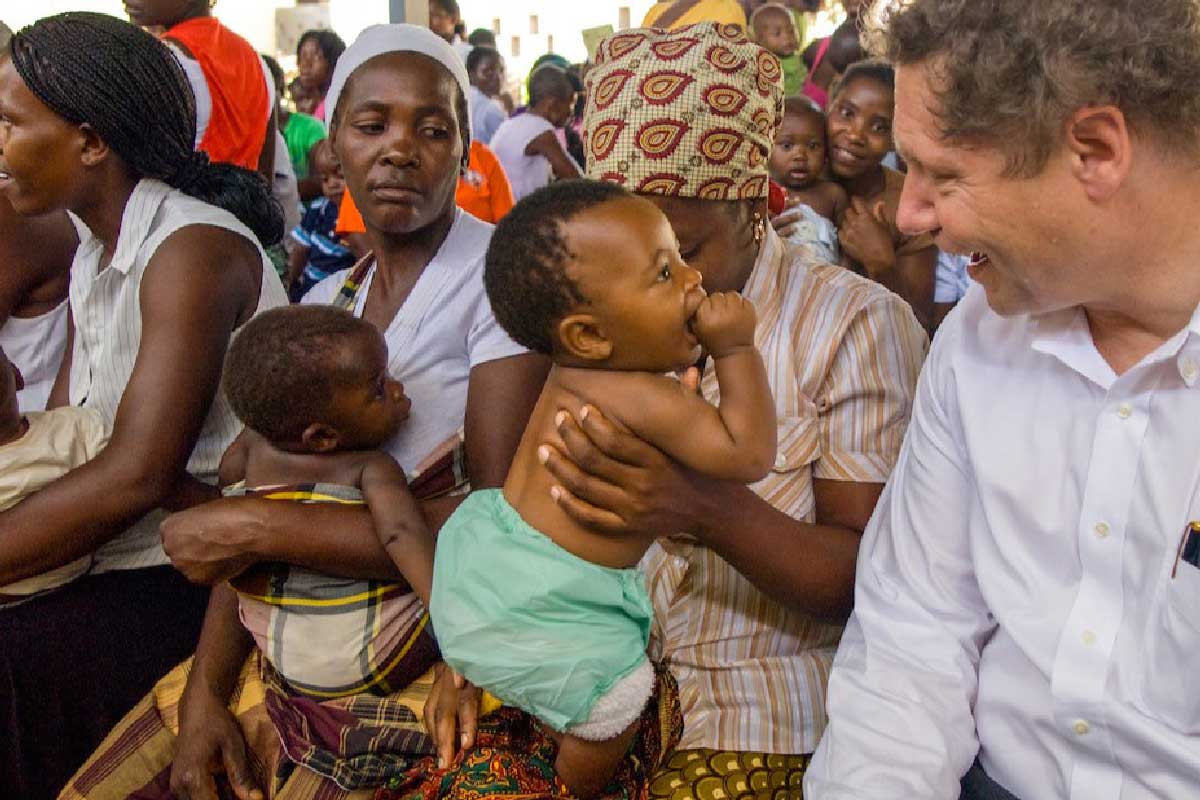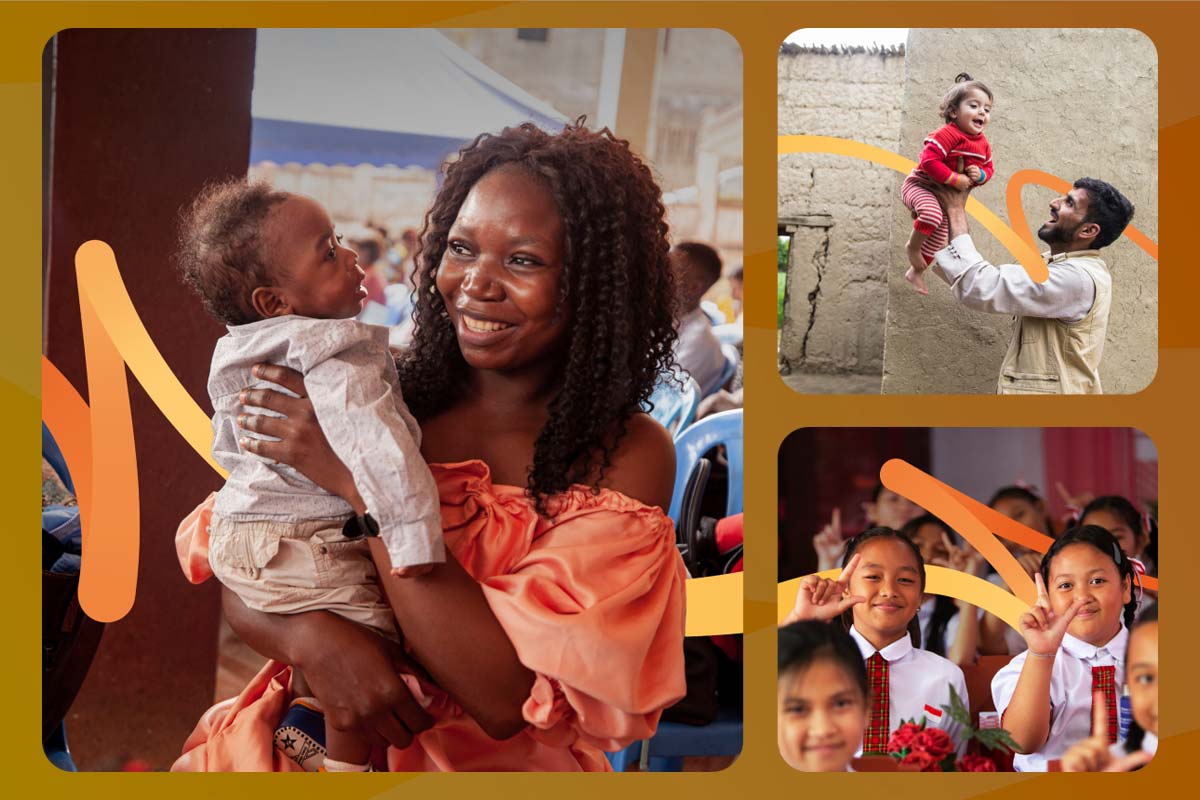Gavi at UNGA 79: delivering on the promise of a healthier future
In a world fighting conflict, climate change and insecurity, this year's UN General Assembly is a crucial moment for countries to agree on a new pact for a healthier future.
- 18 September 2024
- 6 min read
- by Pascal Barollier
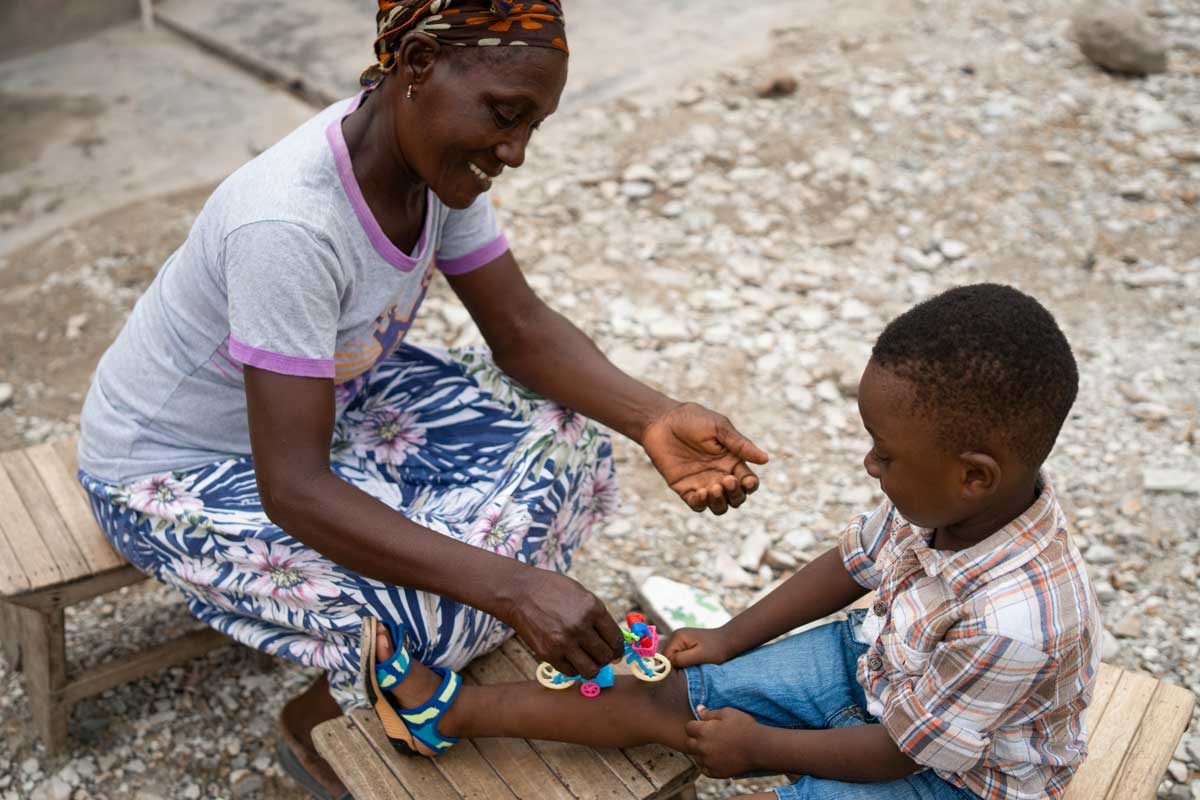
The 79th session of the United Nations General Assembly opened last week with sobering reflections on the state of the world. The chaos caused by the climate crisis is driving hunger, poverty, population displacement and contributing to a spike in the number of infectious disease outbreaks.
Antimicrobial resistance (AMR) is rendering once-treatable infections increasingly dangerous. Against this backdrop, the world’s most vulnerable people are facing numerous conflicts and humanitarian crises.
In the acutely interconnected world we live in, it’s clear that global threats are not confined within the borders of any single nation; they transcend geographical and political boundaries, impacting communities worldwide. This underscores the urgency for countries to collaborate, share resources and implement joint strategies.
Yet, even in the face of a global pandemic such as COVID-19, where international cooperation was more vital than ever, we saw a surge of health nationalism with countries hoarding data, medical supplies and vaccines to the disadvantage of the poorest nations.
It took Gavi 20 years to help countries reach 1 billion children with life-saving vaccines. Helping countries reach the second billion, in half the time, will depend on strong commitment from the broad array of stakeholders that form the Vaccine Alliance.
Protecting future generations
This year’s UNGA is designed to safeguard against global fragmentation and health nationalism and radically improve international cooperation. The Summit of the Future taking place on 22 and 23 September describes itself as “hitting the reset button” on global cooperation, asking countries whether they want to “breakdown or breakthrough”. An ambitious ‘Pact of the Future’ is expected to be agreed on to turbocharge the achievement of the Sustainable Development Goals (SDGs).
Immunisation has always been key to achieving the SDGs, as it protects the next generation who are key to the world’s future. Childhood disease means that millions of them are at risk of dying in the first few years of life.
Global immunisation has come a long way since the start of the millennium. A child born in a Gavi-supported country is 70% less likely to die from a vaccine-preventable disease before their fifth birthday than when the Vaccine Alliance was created in 2000. Nevertheless, 14.5 million children still have not received a single dose of any vaccines in 2023, and many more remain under-immunised.
While many countries are trying harder than ever to make up for missed vaccinations during the pandemic, it is time to intensify initiatives aimed at halving the number of zero-dose children – those who have not received any routine vaccines – by 2030, notably by implementing the “Big Catch-up”.
As well as lifesaving routine immunisations, we should now scale up malaria vaccines in endemic countries as part of comprehensive malaria control plans, which could save tens of thousands of lives each year. Also, rolling out and scaling up HPV vaccination by prioritising the uptake by adolescent girls aged 9 to 14 years old would save millions of women from cervical cancer.
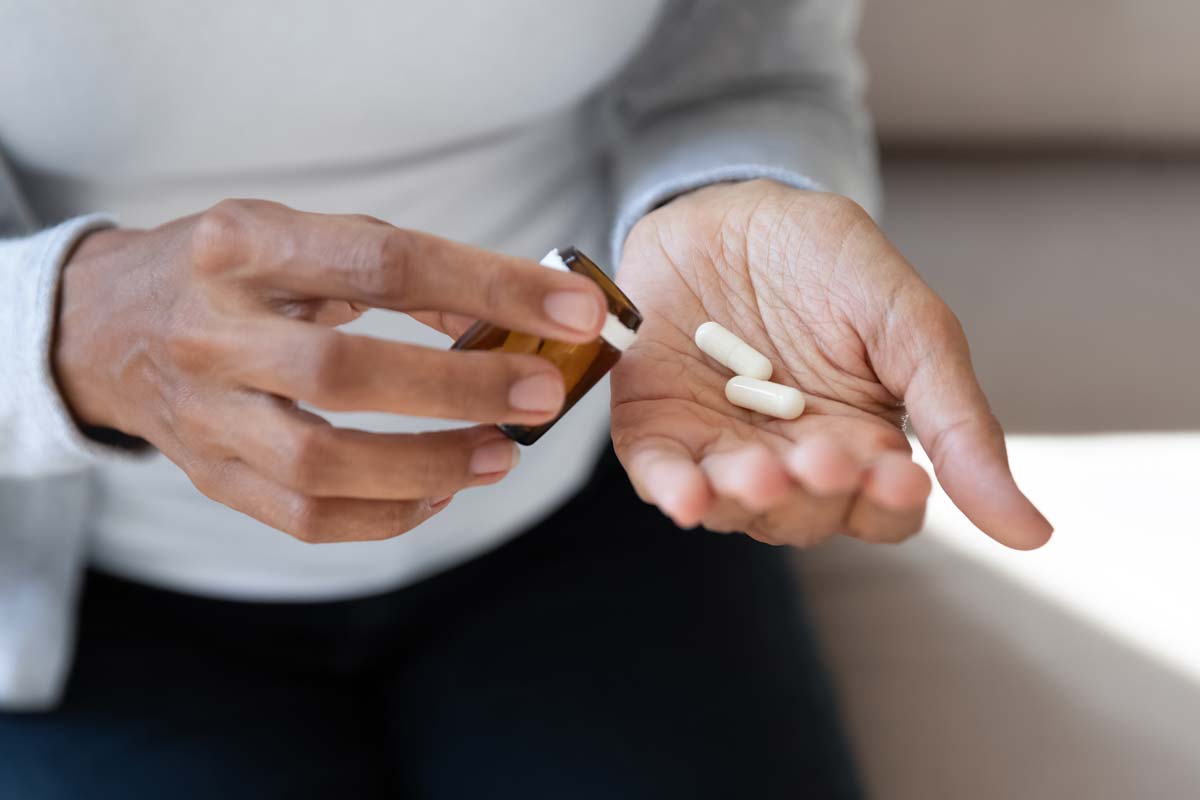
Safeguarding against untreatable infections
This year’s UNGA will convene the second-ever High-Level Meeting on antimicrobial resistance (AMR) that will try to galvanise action towards a threat that if left unchecked could significantly roll back our ability to treat basic infections.
The first one in 2016 sounded alarm bells about action that needed to be taken, but sluggish cooperation both between countries and health agencies meant that not enough progress has been made. Now, antimicrobial resistance is already associated with five million deaths a year.
It isn’t too late, though, as we have one of the best tools at our disposal to combat AMR: vaccines. By preventing infections and in some cases, transmission of pathogens, vaccines can reduce the number of antimicrobials that need to be used to treat infections, thereby reducing the chance for pathogens to evolve.
There’s a huge opportunity being missed in using vaccines to mitigate AMR. An analysis of 108 national AMR plans, for example, found that just 13% (or 14 out of 108 national action plans) included immunisation and the need for strengthening immunisation programmes as a tool for preventing and reducing AMR.
Countries must integrate their vaccination programmes within national AMR plans and ensure alignment with national immunisation strategies to maximise potential benefits. They should also increase their investment in immunisation to increase the impactof strategies to tackle AMR.
Build resilience to climate change
Those living in low-income and vulnerable countries and communities are often at the frontline of global crises as they lack the means to shield themselves from threats, and climate change is no different.
Many countries that Gavi supports are vulnerable to extreme weather events such as floods and droughts, which can cause population displacement, malnutrition and infectious diseases, therefore protecting them should be a priority.
By incorporating public health measures in National Adaptation Plans (NAPs), countries could ensure that climate and health policies are tailored to the local environment and epidemiological context.
Similarly, strengthening surveillance and vulnerability assessments of climate-sensitive diseases (including malaria, diarrhoea, yellow fever, cholera, meningitis A, dengue, chikungunya and others) will be key for countries to scale up prevention and build associated immunisation programmes.
And finally, building climate resilient, low-carbon, sustainable health systems could be a game-changer for all countries. Studies are increasingly showing that greening health systems, especially supply chains and procurement, leads to cost savings and improvement in health – on top of environmental protection outcomes.
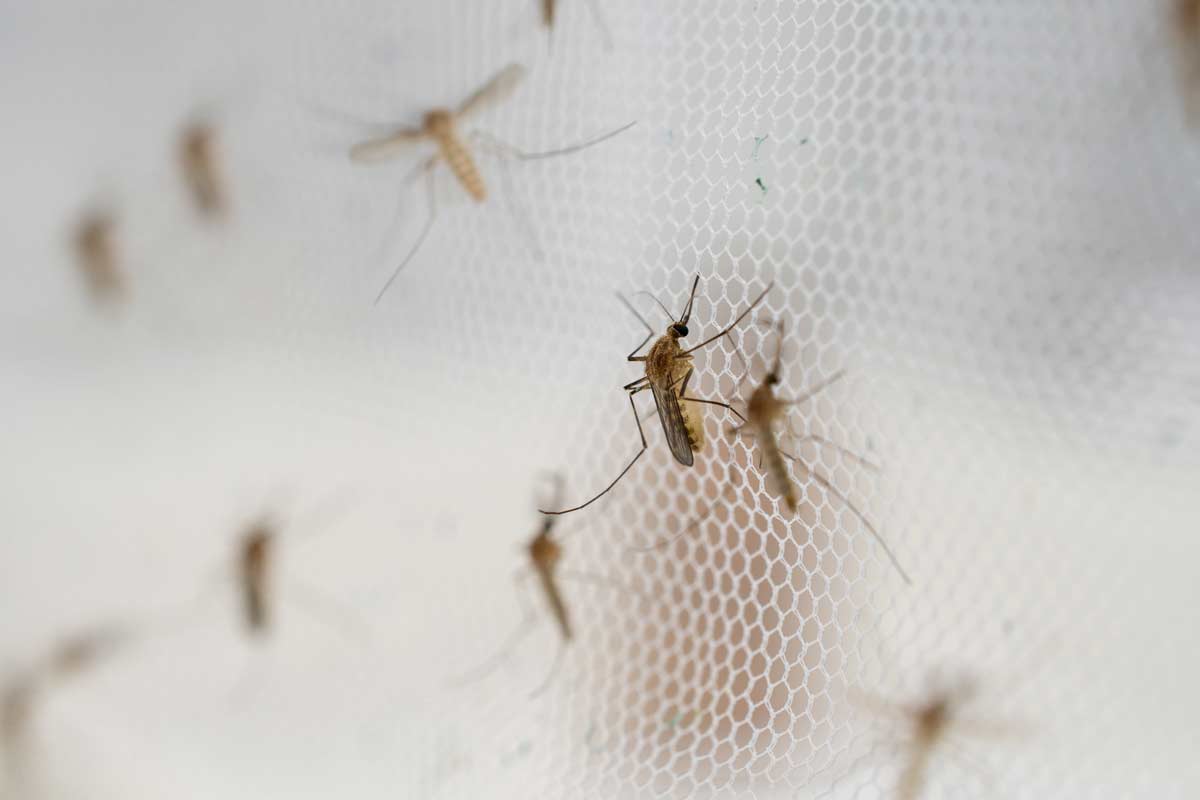
Responding as a collective
We live in a more tightly interconnected world than ever, where events in one country can rapidly affect others. Climate change, outbreaks and antimicrobial resistance do not respect borders.
Country collaboration can mean better surveillance and early detection of outbreaks; it can mean exchanging vital knowledge, experience and technology; it can mean building global resilience that can buffer against future threats.
Have you read?
This isn’t about altruism or about benevolence, it’s about understanding that we are effectively living under the same roof.
We know the future is looking at us and time is running short for the international community to address the existential challenges that are increasingly threatening all countries, and vulnerable populations especially.
If we are to start with concrete actions, now is the time to support Gavi’s replenishment and help countries accelerate impact with life-saving vaccines and save an estimated 8–9 million lives from 2026–2030.
Read the original article on LinkedIn
Follow the conversation:
Mark your calendar and join Gavi and our partners at the following #UNGA79 events:
Sunday 22 September
- 12th Annual Accountability Breakfast at the UN General Assembly (8:30–10:30) organised by the Partnership for Maternal Newborn and Child Health
- Ensuring Sustainable Access to Effective Antibiotics (16:00–18:00) organised by One Health Trust
Monday 23 September
- Securing the Future with pro Community Health Workers: A timeless investment in health for all (07:30–08:45) organised by the Community Health Impact Coalition
- High-level dialogue on proven solutions for children (10:00–12:00) organised by UNICEF
Tuesday 24 September
- Health Equity for All (11:00–12:15) organised by Clinton Global Initiative (CGI)
- Building health workforce resilience: Preparing for tomorrow’s climate and health crises (12:30–13:30) organised by IntraHealth
Wednesday 25 September
- The Role of Immunization in Climate Adaptation” (13:00–14:00) organised by Foreign Policy
- Mobilizing for a People-Centered Approach to Climate Adaptation, Pandemic Preparedness, & Saving Lives (19:30–21:00) organised by Seed Global Health
Thursday 26 September
- UN General Assembly High-Level Meeting on antimicrobial resistance 2024
- Taking the Lusaka Agenda forward: Optimizing partnerships to achieve UHC (16:30–18:00) organised by United Nations Foundation
Friday 27 September
- Converging AI and Health for All (08:00–09:30) organised by World Economic Forum
Saturday 28 September
- Global Citizen Festival (15:00–20:00) organised by Global Citizen
If you have any questions related to Gavi’s engagement at UNGA79, please contact: Thiago Luchesi

